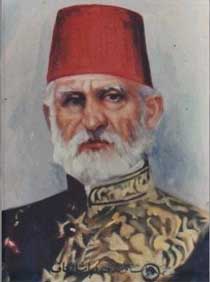Mohamed Pasha Jaff | |
|---|---|
 Mohamed Pasha Jaff | |
| Born | 1714 |
| Nationality | Kurdish |
| Occupation(s) | Nobleman, leader of Jaff tribe |
| Known for | Leader of the Jaff tribe, builder of Sherwana Castle |
| Notable work | Sherwana Castle |
Mohamed Pasha Jaff (1714) was a Kurdish nobleman and the supreme leader of the Kurdish Jaff tribe, a tribe living in the region located between southwest of Sanandaj and Javanroud, and also areas around the city of Sulaimaniyah. Jaff is notable for being the builder of the Sherwana Castle.